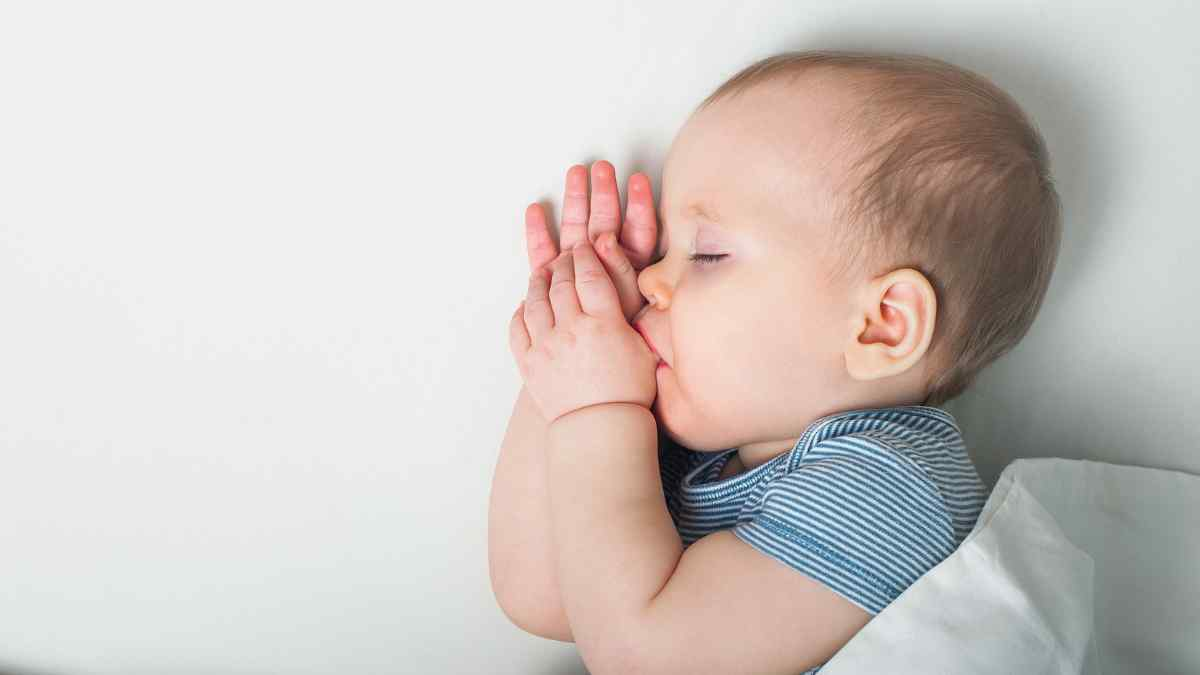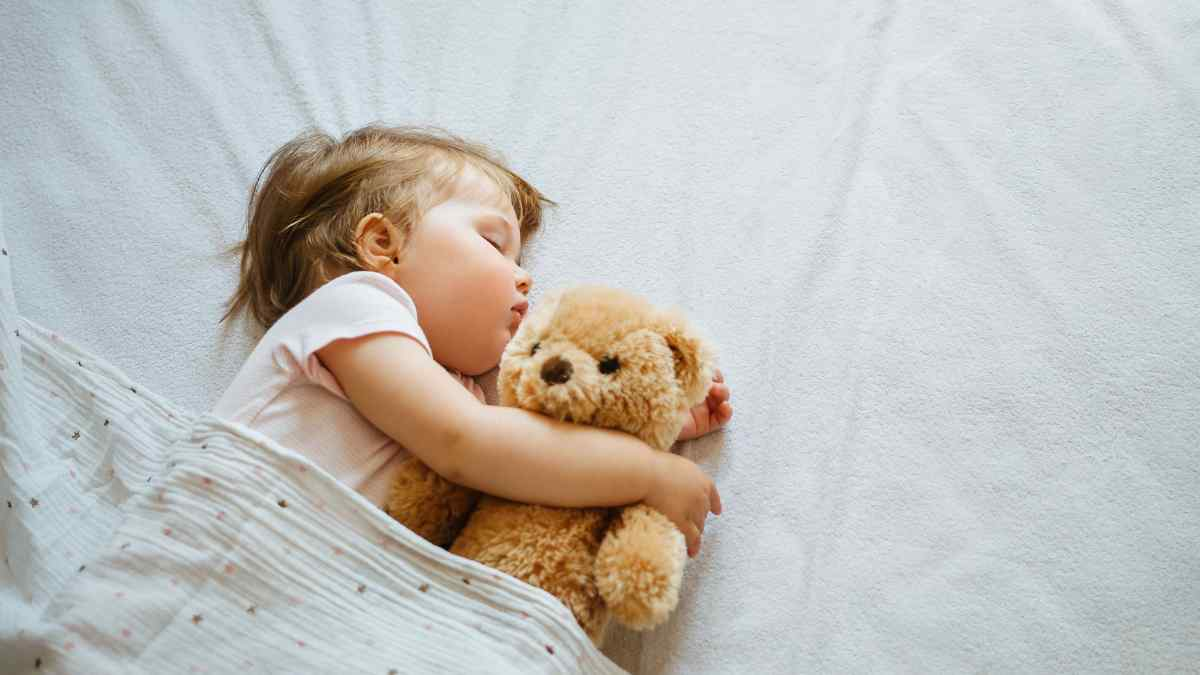Every new parent dreams of the night when their baby will finally sleep through, bringing respite to those long, sleep-deprived nights. While there are myriad factors that influence a baby’s sleep patterns, one often overlooked aspect is hydration. Just as adults can experience disrupted sleep due to dehydration, so too can our little ones. A balance between ensuring your baby is well-hydrated without encouraging excessive nighttime feedings is the key to a peaceful night’s rest. In this article, we delve into the intricate dance between hydration and sleep, offering insights and guidance on how to ensure your baby gets both the fluids and the rest they need to thrive.

Understanding a Baby’s Hydration Needs
For parents, ensuring their child gets a good night’s sleep often tops the list of priorities. After all, good sleep habits are pivotal for a baby’s health and overall development. But did you know that hydration plays a significant role in how well your child sleeps? Let’s delve deeper.
Importance of Staying Hydrated
Staying hydrated isn’t just about quenching thirst. For newborn babies, it’s crucial for almost every aspect of their health. Proper hydration supports good sleep patterns and reduces the risk of several health issues, including sudden infant death syndrome (SIDS). A baby who’s well-hydrated will likely sleep comfortably through the night, reducing instances where the baby wakes up frequently.
The “back to sleep” campaign, which advises parents to put their baby to sleep on their back, has emphasized the links between good sleep habits and reduced risks of SIDS (sudden infant death syndrome). But equally, ensuring babies get enough fluids during the day can make sure they have a consistent sleep routine at night.
Signs of Dehydration in Babies
For many parents, knowing when their baby is dehydrated can be a challenge. Some common signs include:
- Darker urine or fewer wet diapers.
- Dry mouth and lips.
- Sunken eyes or soft spot on the head.
When a baby shows signs of dehydration, their sleep may be disrupted. It’s essential to remain calm and consult with a pediatrician to ensure the baby’s well-being.
Factors Affecting a Baby’s Hydration
1. Age: Younger infants, especially those under 6 months, rely heavily on breastmilk or formula for hydration. As children age, their hydration sources diversify.
2. Weight: The amount of fluids a baby needs can depend on their weight. Make sure to consult with a pediatrician for guidance.
3. Activity Level: Active toddlers burn more energy and may need more fluids compared to infants who sleep most of the day.
4. Diet: A balanced diet plays a role in hydration. As many children transition to solid foods around 6 months, water and other fluids become essential.
Every child’s sleep needs differ. While one baby falls asleep swiftly after a bedtime routine with soft music, another might need a sleep sack for comfort. The National Sleep Foundation has reported that children’s sleep requirements vary by age. Newborns might need up to 17 hours, while school age children thrive with 9-12 hours.
Sleep deprivation can lead to a host of problems, including difficulty falling asleep, poor sleep quality, and even postpartum depression in mothers. Room sharing can help the baby sleep closer to parents, ensuring quicker responses during night feedings. It’s crucial for parents to make sure their child’s room or sleep space is at a comfortable temperature and free from distractions like watching television.

The Role of Hydration in Sleep
Building on our previous exploration of a baby’s hydration needs, it becomes clear that hydration and sleep are intricately linked. Like the pieces of a puzzle, each aspect of your baby’s wellness plays a role in their overall health and development. With the understanding of why staying hydrated is crucial and recognizing the signs of dehydration, let’s dive into the pivotal role hydration plays in a baby’s sleep.
How Dehydration Can Impact Sleep
1. Discomfort: A dehydrated baby is an uncomfortable one. The lack of adequate fluid can cause dryness in the nasal passages and mouth, making it difficult for the baby to fall asleep comfortably.
2. Overheating: Hydration helps regulate body temperature. A dehydrated baby may feel warmer, and this overheating can prevent them from entering deep, restorative sleep stages. In such cases, even if the baby sleeps, the quality sleep they need for optimal child development may be compromised.
3. Waking Up Thirsty: Just as adults might wake up in the middle of the night feeling parched, babies too can experience this discomfort. This interrupts their sleep routine and can make it challenging for them to go back to sleep, especially if they’re not used to self-soothing.
Balancing Hydration and Nighttime Feedings
Parents face the delicate task of ensuring their baby gets enough fluids without too many nighttime feedings. Around the age of 6 months, as many babies start incorporating solid foods into their diet, their nighttime feeding needs might decrease. However, it’s essential to maintain a consistent routine, allowing the baby to self-soothe and fall asleep independently. A regular bedtime, perhaps followed by quiet activities or the soft comfort of stuffed animals, can help your baby transition into sleep.
For parents who worry about tooth decay, it’s good to remember that while nighttime feedings might be necessary for younger infants, older toddlers should ideally not go to bed with a bottle, especially one filled with sugary liquids.
Urine Output and Color as Indicators of Hydration
One of the most straightforward indicators of your child’s hydration is their urine output and color. A well-hydrated baby will have pale, clear urine. Darker urine can be a sign of insufficient sleep and inadequate hydration, signaling that the baby might not be getting the total sleep they need.
In the same room where your baby sleeps, it might be beneficial to have a play yard or a designated sleep space where they can safely explore and play for a short while before settling down. This can be especially beneficial for active toddlers whose circadian rhythms have them energized a bit longer than we’d hoped.

Strategies for Optimal Evening Hydration
Building on the importance of hydration and its role in fostering quality sleep, it becomes paramount for parents to strategize evening hydration routines. As we’ve already discovered, maintaining the right balance of hydration without promoting excessive nighttime awakenings is essential. Here, we’ll delve into strategies that can guide the evening hydration process, ensuring that your little one is well-hydrated, comfortable, and ready for a restful night’s sleep.
1. Spacing Out Feeding or Bottle Times Before Bedtime
To prevent your baby from waking up due to a full bladder, it’s beneficial to space out feeding or bottle times as bedtime approaches. Instead of giving a large feed right before putting your baby back to sleep, consider offering a smaller portion an hour or so before the intended sleep time. This allows enough time for your baby to process the fluids and reduce the likelihood of middle-of-the-night diaper changes.
2. Recognizing the Difference Between Hunger and Thirst
Often, babies might cry, not because they’re hungry but because they’re thirsty. Recognizing this difference can help in adjusting evening routines. For instance, if your baby had a solid meal but still seems fussy, they might just need a bit of hydration. Offering a small amount of fluid can help your baby feel calm and satiated without overfilling their tummy.
3. Offering Small Amounts of Water for Babies Over 6 Months
Once your child reaches the six-month milestone and begins transitioning to solid foods, introducing small amounts of water can be beneficial. Remember, for babies under 6 months, breastmilk or formula should ideally be their primary source of hydration. However, for older infants, a little water before bedtime can help them stay hydrated through the night, reducing the chances of them waking up thirsty.
4. Ensuring the Room Temperature is Comfortable
Room temperature plays a significant role in how comfortably a baby sleeps. A room that’s too warm can cause your baby to sweat excessively, leading to dehydration. To promote safe sleep and reduce sleep difficulties, it’s crucial to maintain a room temperature that’s neither too hot nor too cold. This ensures that your baby sleeps soundly in their own beds without the risk of overheating. Regularly checking the room’s thermostat and adjusting it as needed can make a world of difference in your child’s sleep quality.

Conclusion
Raising a baby comes with its fair share of challenges and triumphs. Sleep and hydration, while often treated as separate entities, are deeply interconnected facets of a child’s well-being. The dance between ensuring adequate hydration without compromising sleep requires a delicate balance and nuanced understanding. By focusing on both these elements, parents can offer their little ones the foundation for a healthier, happier life. Remember, while the nights may sometimes seem endless, the phase is fleeting. Armed with the right knowledge, patience, and love, every parent has the tools to ensure that their baby gets the restorative sleep they need and the hydration they require. Embrace each moment, knowing that every effort made today paves the way for a brighter, well-rested tomorrow for your baby.
Did this article help you? Please let me know in the comments section below. If you have any questions, don’t hesitate to ask.



